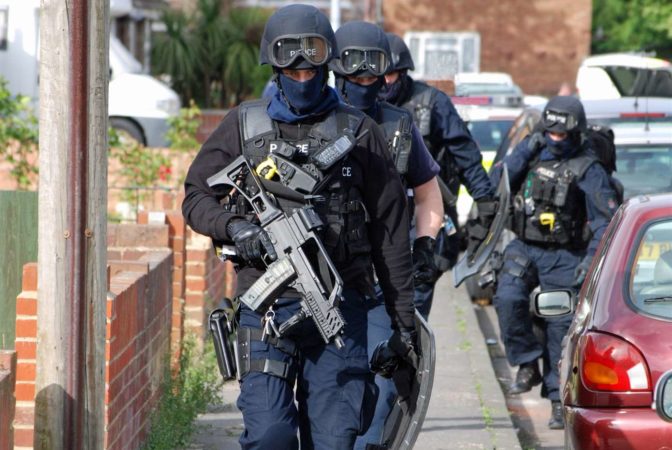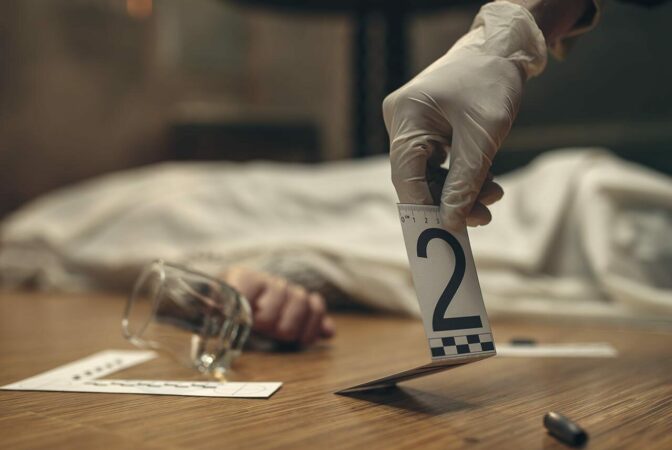Mr G faced a murder trial despite not stabbing the victim, who was killed in a busy park over a £10 drug debt.
The law enables those who did not strike the fatal blow or pull the trigger to be convicted of murder by association.
Police launched a murder investigation after a man was beaten and stabbed in an East London park.
A doctor who happened to be playing football performed open heart surgery at the scene but the man died at the scene.
Post mortem tests revealed he had died from blood loss after being stabbed in the heart and left lung.
Prosecutors claimed that Mr G was part of a gang owed £10 for cannabis and that the man was attacked because he could not pay up immediately.
The suspected knifeman fled the country and evaded justice, leaving Mr G and others to stand trial under joint enterprise.
A spokesman for Stuart Miller Solicitors, which represented Mr G, explained: “The prosecution’s case was that by joining in the vicious group attack, it was plain that Mr G and his co-defendants were intending that the deceased be caused some really serious injury.
“This was a difficult case from the outset, with heightened emotions threatening community ties.
“Witnesses described the group of males ‘surrounding the deceased like vultures’ and ‘kicking his head like a football’.
“The initial descriptions provided of the male kicking to the head were similar to Mr G. Not only that, he had actually been named by a fellow Afghan who was present at the time of the attack.”
Mr G denied murder and claimed that he was responsible for a solitary kick when the victim lay on the ground. He said he could not have thrown a punch because his wrist was fractured.
He denied having any knowledge that the killer was in possession of a knife, or that he would stab the man.
Faced with a complex case, including CCTV and phone evidence which prosecutors claimed were drug calls, Stuart Miller Solicitors worked hard to best represent Mr G.
The telephone data was scrutinised and it soon transpired that the main suspect would buy and sell clothes, which Mr G would sometimes purchase. It means that phone calls between the men each other were not wholly unusual.
Medical evidence was also obtained proving that Mr G had attended casualty for a fracture to his right wrist – his dominant hand- just one week before the murder.
Before the murder trial started, the prosecution added an alternative charge of manslaughter – claiming that the defendants intended to cause some harm, even if they did not mean to kill.
This presented its own difficulties for Mr G’s legal team.
The Stuart Miller Solicitors spokesman added: “We analysed the evidence of the pathologist to confirm the nature of the injuries found on the body of the deceased.
“Although he had suffered injuries to his face, we were able to establish that there was no evidence of injury, including bruising, to the back of the head where Mr G had kicked.
“This was vital if the jury were to consider Mr G’s intention to cause some harm.”
Jurors were set to retire to consider their verdicts, using a judge-provided document called a ‘Steps to Verdict’.
This aid would set out each point the jury had to be satisfied with in order to convict Mr G of murder or manslaughter.
But having had an admission from Mr G that he kicked the victim in the head, using the document in its original form would likely lead to a manslaughter conviction and inevitable prison time.
Stuart Miller Solicitors secured a crucial revision to the document citing a Supreme Court precedent to add a final question: “Was there an overwhelming supervening act?”
The spokesman explained: “Essentially, nobody in Mr G’s shoes could have contemplated that the principal attacker would bring a knife to the park and stab the deceased. If this was the case then Mr G would bear no criminal responsibility for the death.
“After hearing our submissions, the judge allowed a final question to be added to the ‘Steps to Verdict’ document dealing with the presence of an overwhelming supervening act.
After a four week trial, and four days of deliberation, the jury returned not guilty verdicts on both murder and manslaughter.






